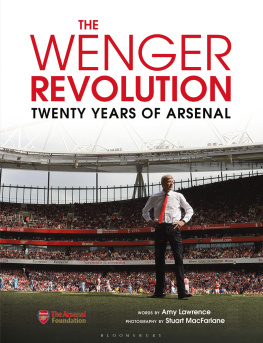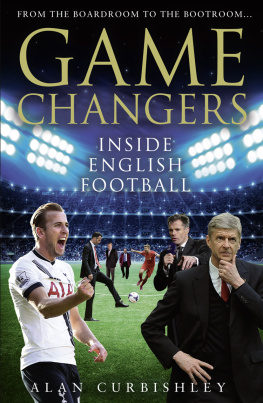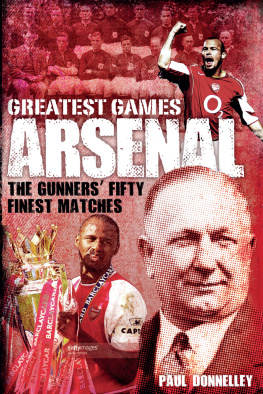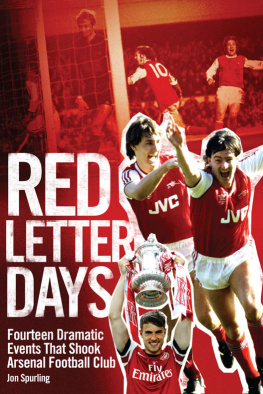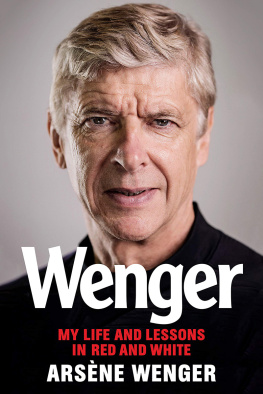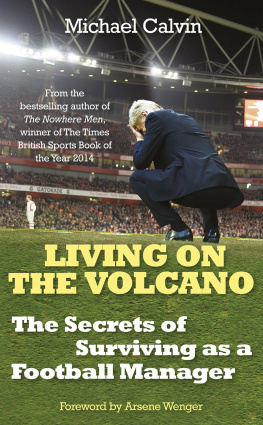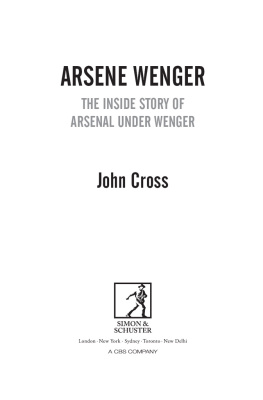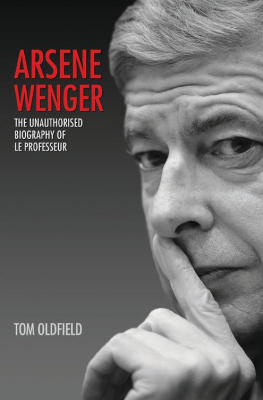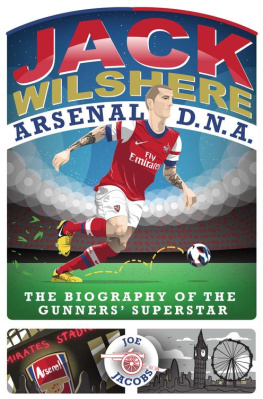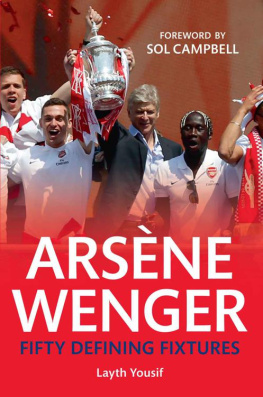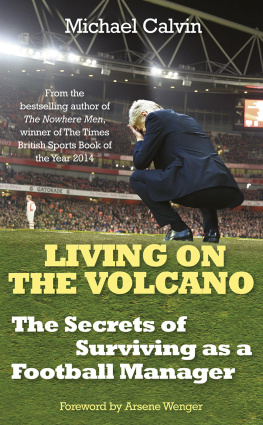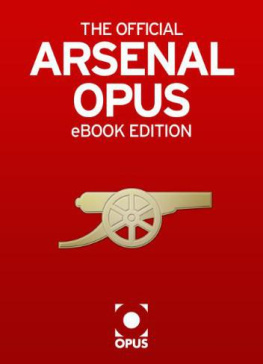
Bloomsbury Sport
An imprint of Bloomsbury Publishing Plc
50 Bedford Square | 1385 Broadway |
London | New York |
WC1B 3DP | NY 10018 |
UK | USA |
www.bloomsbury.com
First published in 2016
This electronic edition published in 2016 by Bloomsbury Publishing Plc
Bloomsbury is a registered trademark of Bloomsbury Publishing Plc
Amy Lawrence, 2016
Photography Arsenal and Colorsport.
Please see for full photo acknowledgements.
Amy Lawrence has asserted her right under the Copyright, Designs and Patents Act, 1988, to be identified as the Author of this work.
All rights reserved
You may not copy, distribute, transmit, reproduce or otherwise make available this publication (or any part of it) in any form, or by any means (including without limitation electronic, digital, optical, mechanical, photocopying, printing, recording or otherwise), without the prior written permission of the publisher. Any person who does any unauthorised act in relation to this publication may be liable to criminal prosecution and civil claims for damages.
No responsibility for loss caused to any individual or organization acting on or refraining from action as a result of the material in this publication can be accepted by Bloomsbury or the author.
British Library Cataloguing-in-Publication Data
A catalogue record for this book is available from the British Library.
At least 8% of the publishers net proceeds from the sale of this book will be donated to The Arsenal Foundation (Charity No. 1145668)
ISBN: 978-1-4729-3387-4 (HB)
ISBN: 978-1-4729-3388-1 (eBook)
ISBN: 978-1-4729-3389-8 (ePDF)
To find out more about our authors and their books please visit www.bloomsbury.com where you will find extracts, author interviews and details of forthcoming events, and to be the first to hear about latest releases and special offers, sign up for our newsletters.
FOREWORD BY ARSNE WENGER
I n England I believe your football club is a part of your passport. You live with it, you die with it. It is a bit like a nationality nobody in England would ever consider changing their passport during their lifetime. It is the same for their club.
That gives a club a responsibility. It is not like we have clients who are moving in and out, being with you or with someone else. You have people who you know will go home and cry when you lose a game, who will suffer when you dont play well. So you feel you have a kind of responsibility to make them proud of their club. To make them proud manifests itself two ways. Of course in a short punctual way that happens through results and the way you play football. But over a longer period I believe the values of the club that carry through the generations make people proud as well.
Today I notice more the popularity of Arsenal when I travel the world compared to when I am in England. That for me is down to the fact that we are recognized as a club who has a multicultural acceptance and a club who gives a chance to people who have a dream. Its a series of values we are proud to carry through the years. The club can influence peoples lives in a positive way.
The work of the Arsenal Foundation means a lot to me because it reminds me of the way I was educated, and what a club can provide for people. Football clubs in the villages where I grew up in France helped people out. I witnessed it from when I played as a kid. Sometimes people who had no parents found the football club could replace a little bit of the influence of the sense of family. Those guys were on the fringe of going one way or the other in life. In that kind of situation either the people they connect with inside the club, or the motivation the game itself provides, can be very powerful.
The work of the Arsenal Foundation is committed to the power football can have to change lives. Football can reach people who seem to be beyond help and bring some normality to their life again, giving them a purpose through that chance to be part of a team. That structure and motivation gets them back on the right path. Football has an educational and a social responsibility and that is at the core of what we are about at Arsenal.
After 20 years at the club I feel responsible for every bad thing that happens to Arsenal and proud of every good thing that happens. I always say when you wake up in the morning and you can go to a football game, you hope it can be a moment of happiness in your life. We have to try to give that to people.
Arsenal has become my passport now. Only six months in a club nowadays is massive. You cannot be 20 years inside a club and not feel accountable for whats happening. Thats impossible. So of course it has become my identity. My passport is red and white in fact.

Arsne Wenger, Arsenal Training Ground, 2016


T he Arsne Wenger of 2016 looks momentarily lost in thought, almost taken aback, when he takes a moment to look at his former self. He studies a photograph taken on his very first day as manager of Arsenal, two decades previously. It seems to move him like a form of time travel. The Arsne Wenger of 1996 is wearing a dark suit and the slightly garish club tie of the times, sitting in the Clock End, arms casually outstretched over the backs of the row of seats. His expression reveals a man absolutely in his element. He is relaxed, ready, and motivated to show what he knows he can do.
Its striking to recall how few people in England shared the confidence he had in himself. The vast majority of the football public, the Arsenal supporters even some of the players felt some reticence. Who is this guy? What will he be like? Is it even possible for a foreign manager to cut it in England? History didnt offer any evidence of that. The Wenger of today looks back at the Wenger of day one and remembers it well. I felt quite a lot of scepticism, he admits.
But in himself, he felt very assured. Although he was new to almost everyone in the English game, he did not see himself as a novice. He was 46 years old and had already been learning, and putting into practice, his football ideas professionally for almost 20 years. I already felt quite old at that stage, he explains. Lets not forget I already had 12 years at the top level when I came to Arsenal, with responsibility for spotting, buying and training players. Long before that I started to scout at the age of 27, 28. So I already had a long career behind me.
That had been mostly in his native France, but also his methods had been shaped by a left-field career choice to go to Japan. Returning to Europe to join Arsenal was a move that felt loaded with significance to him, as he had wondered whether he might stay in Asia for the long term. Coming back to Europe was a big decision for me, he says. It was a new start in my life. A big part of his personality is to approach challenges with intellectual rigor, a workaholic's determination, and a human touch. His time in Japan had showed him the value of using his own strong ideas with an open mind. I always had a kind of confidence in myself and a nature for questioning myself.
Next page
